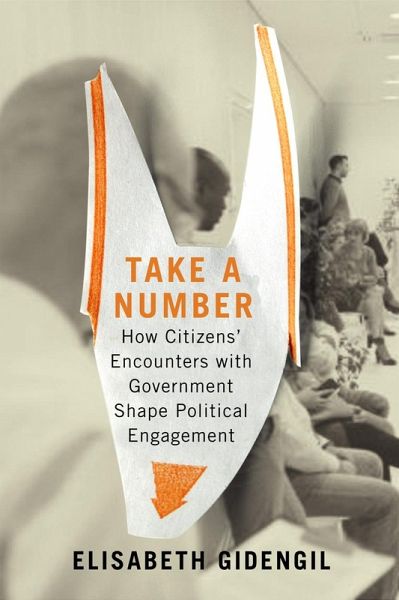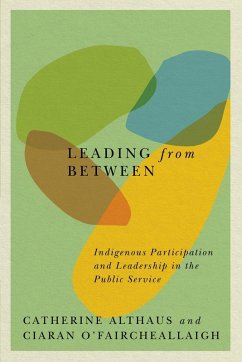
Take a Number (eBook, ePUB)
How Citizens'' Encounters with Government Shape Political Engagement

PAYBACK Punkte
12 °P sammeln!
Inspired by American studies of the impact of government programs on clients'' political activity, Take a Number breaks new ground by investigating the lessons that people draw from their experiences with government bureaucracies, reaching very different conclusions about the effects of program participation in Canada. People''s experiences with service providers matter. Far from being de-politicizing, negative experiences can be empowering, stimulating greater political interest and more political activity. In contrast to the findings of some American studies, there is no evidence that these ...
Inspired by American studies of the impact of government programs on clients'' political activity, Take a Number breaks new ground by investigating the lessons that people draw from their experiences with government bureaucracies, reaching very different conclusions about the effects of program participation in Canada. People''s experiences with service providers matter. Far from being de-politicizing, negative experiences can be empowering, stimulating greater political interest and more political activity. In contrast to the findings of some American studies, there is no evidence that these encounters leave claimants in Canada with the sense that they are neither legitimate nor effective actors in the public sphere. Rather than discouraging participation in politics, being a recipient of means-tested benefits likewise seems to be politically mobilizing. Based on extensive survey data, Take a Number casts new light on the problem of non-take-up of social benefits. Elisabeth Gidengil reveals that those who are most likely to benefit are often unaware of government programs. The more demanding and intrusive the claiming process, the more likely claimants are to find it difficult to access the program. These experiences with government programs prove to have larger implications for users'' confidence in institutions and their satisfaction with democracy. A wide-ranging study of the politicizing effects of social program participation, Take a Number introduces a compelling new dimension to our understanding of why some citizens are politically active while others remain quiescent.
Dieser Download kann aus rechtlichen Gründen nur mit Rechnungsadresse in A, B, BG, CY, CZ, D, DK, EW, E, FIN, F, GR, HR, H, IRL, I, LT, L, LR, M, NL, PL, P, R, S, SLO, SK ausgeliefert werden.













